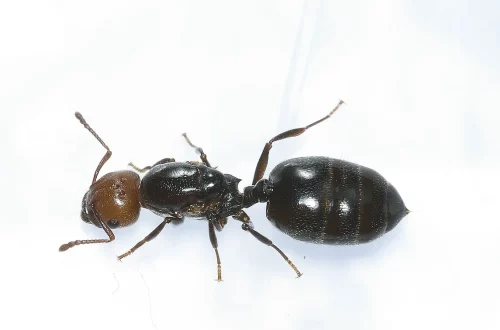
Essential Guide to Creating a Horse Wormer Schedule for Your Equine Care
Creating a comprehensive horse wormer schedule is essential for maintaining the health and well-being of your equine companions. Like any pet, horses are susceptible to a variety of parasites, which can affect their overall health, performance, and even their lifespan. These parasites, which include worms such as strongyles, roundworms, and tapeworms, can cause a range of issues from mild discomfort to serious health complications.
Effective parasite control requires a systematic approach, integrating knowledge about the life cycles of these worms, the specific needs of your horse, and environmental factors that may influence worm prevalence. By establishing a tailored worming schedule, horse owners can minimize the risk of infestation and promote a healthier, happier horse.
Moreover, understanding the nuances of horse care, including nutrition, exercise, and regular veterinary check-ups, will complement your worming efforts. This guide will delve into the key aspects of creating an effective worming schedule, helping you ensure your horse remains in peak condition throughout the year.
Understanding Horse Parasites and Their Impact
Horses are host to various internal parasites that can impact their health in significant ways. The most common types include large and small strongyles, ascarids (roundworms), and tapeworms. Each of these parasites has a unique life cycle and mode of transmission, making it crucial for horse owners to understand their behavior.
Strongyles are particularly concerning due to their potential to cause serious health issues. Large strongyles can migrate through the horse’s bloodstream, damaging vital organs and leading to colic, while small strongyles can encyst in the intestinal walls, causing weight loss and lethargy when they emerge. Roundworms are especially problematic in young horses, as they can cause blockages and other severe complications. Lastly, tapeworms, though less common, can also lead to colic and other gastrointestinal issues.
The impact of these parasites is not merely physical; they can also affect a horse’s performance and overall demeanor. Horses that are infested with worms may exhibit signs of discomfort, such as a dull coat, poor appetite, and decreased stamina. They may also be more susceptible to other health issues due to a compromised immune system.
To effectively combat these parasites, it is essential to engage in regular fecal testing, which can help identify the type and number of parasites present in your horse. This knowledge is critical for tailoring your worming schedule appropriately, ensuring that your horse receives the right treatment at the right time.
In summary, understanding the types of parasites that affect horses and their potential impact on health is the first step in creating an effective wormer schedule. Regular monitoring and awareness can help you maintain your horse’s health and prevent the complications associated with worm infestations.
Developing a Tailored Worming Schedule
Creating a personalized worming schedule for your horse is a vital component of equine health management. The schedule should consider several factors, including the horse’s age, lifestyle, and the specific parasite risks in your region.
For young horses, it is crucial to begin a deworming program early, as they are more susceptible to certain parasites. Typically, foals should start their deworming regimen at around two months of age, followed by treatments every two months until they reach six months old. After that, a more adult-focused schedule can be implemented.
For adult horses, the worming schedule may vary based on their living conditions. Horses that are kept in a pasture with other equines may be at a higher risk for exposure to parasites and may require more frequent treatments. Conversely, horses that are stabled and have limited access to pasture may need less frequent deworming.
Fecal egg counts can be an invaluable tool in developing a tailored schedule. By testing fecal samples, you can gauge the level of parasitic infestation and adjust your worming strategy accordingly. If a horse shows a low egg count, it may be beneficial to extend the time between treatments, while a high count may necessitate immediate intervention.
Furthermore, the specific dewormers used should be rotated regularly to prevent the development of resistance among parasites. Consulting with a veterinarian can provide you with the best guidance on which products to use and how often to administer them.
In essence, a tailored worming schedule should be dynamic, taking into account the horse’s individual needs and the prevailing environmental conditions. Regular adjustments based on testing and observation will lead to better health outcomes for your equine friends.
Best Practices for Effective Deworming
Implementing best practices in deworming is essential for ensuring the effectiveness of your horse’s worming schedule. This involves not just the choice of products but also the method of administration and follow-up care.
When selecting a dewormer, it is crucial to choose products that are specifically formulated for the type of parasites you are targeting. Broad-spectrum dewormers can be useful, but it is essential to avoid over-reliance on them, as this can lead to resistance in the parasite population. Always follow the manufacturer’s instructions regarding dosage and administration.
Administering the dewormer correctly is equally important. For oral paste dewormers, make sure to place the syringe at the back of the horse’s mouth to ensure proper swallowing. Additionally, providing a small amount of food afterward may help mask the taste and encourage acceptance.
Post-treatment, monitoring your horse for any adverse reactions is critical. Some horses may experience mild gastrointestinal upset after deworming, but any severe side effects should prompt immediate veterinary attention.
Incorporating good pasture management practices can also significantly enhance your deworming efforts. Regularly cleaning living areas and rotating pastures can help reduce the risk of reinfestation. Additionally, avoiding overstocking can lower the parasite load in the environment.
Finally, maintaining a holistic approach to equine health, including nutrition, exercise, and regular veterinary check-ups, will support your deworming efforts. A healthy horse is better equipped to fend off infections and recover from any potential health issues.
In summary, effective deworming is achieved through a combination of the right products, proper administration, and proactive management strategies. By adopting these best practices, you can significantly improve your horse’s health and well-being.
Monitoring and Adjusting the Worming Strategy
Regular monitoring and adjustment of your worming strategy are vital for long-term success in parasite management. The equine environment is dynamic, and factors such as changes in pasture conditions, horse population, and weather can all influence parasite prevalence.
Conducting regular fecal egg counts is the cornerstone of an effective monitoring strategy. These tests will help you assess the effectiveness of your current deworming schedule and identify any changes needed in your approach. If you notice an increase in egg counts, it may indicate that the current deworming regimen is insufficient or that resistance is developing.
Additionally, observe your horse for any signs of distress or health issues. Changes in behavior, appetite, or coat condition can all be indicators of a parasitic infection. Keeping a detailed log of your horse’s health can assist you in identifying patterns and making informed decisions regarding deworming.
Another key aspect of monitoring is understanding seasonal variations in parasite life cycles. For instance, certain parasites may be more prevalent during warmer months, while others may thrive in wet conditions. Adjusting your worming schedule in anticipation of these variations can help mitigate the risks associated with parasite infestations.
Collaboration with your veterinarian is essential in this process. They can provide expert advice based on your specific situation and help you interpret fecal test results. Regular check-ins with your vet will ensure that your worming strategy remains effective over time.
In conclusion, monitoring and adjusting your worming strategy is crucial for maintaining your horse’s health. By staying proactive and responsive to the changing environment and your horse’s needs, you can significantly reduce the risk of parasitic infections and promote a thriving equine lifestyle.
—
**Disclaimer**: This article is for informational purposes only and does not constitute medical advice. Always consult a veterinarian for health-related concerns about your horse.




